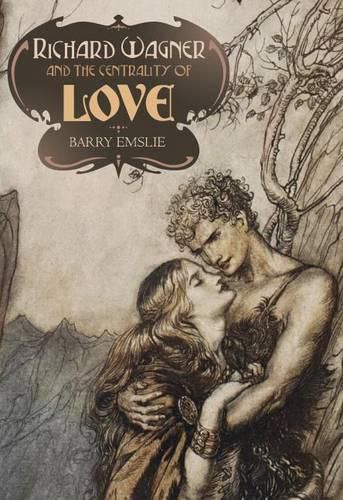Readings Newsletter
Become a Readings Member to make your shopping experience even easier.
Sign in or sign up for free!
You’re not far away from qualifying for FREE standard shipping within Australia
You’ve qualified for FREE standard shipping within Australia
The cart is loading…






Richard Wagner and the Centrality of Love is a bold book which argues that Wagner’s music dramas cannot be understood if treated separately from his essays, his life, the intellectual and artistic climate of his day, and the broader history of Germany. Wagner attempts a range of reconciliations that are radical in content and form and appear to succeed partly because he is in well-nigh complete command of the aesthetic product; not only text and music, but also production practice. Nonetheless, all the reconciliations ultimately break down, but in a manner that is illuminating. This is not a celebration of the seamless work of art, but a radical unpicking of the seemingly seamless.
‘Love’ is the central organising concept of the whole Wagnerian project. Love - sexual and spiritual, egotistical and charitable, love of the individual and of the race - is the key Wagnerian driving force. And therefore so is hate. Of course Wagner cannot employ love without its opposite, and it is critically significant that his anti-semitism is based upon his view that the Jews are ‘loveless’. The book handles Wagner’s anti-semitism (andthe ongoing row about it) in a unique way, in that it is shown to be aesthetically and intellectually productive (for him!). This leads to a radical reinterpretation of Wagner’s music dramas.
BARRY EMSLIE is an independent scholar who lives and teaches in Berlin.
$9.00 standard shipping within Australia
FREE standard shipping within Australia for orders over $100.00
Express & International shipping calculated at checkout
Richard Wagner and the Centrality of Love is a bold book which argues that Wagner’s music dramas cannot be understood if treated separately from his essays, his life, the intellectual and artistic climate of his day, and the broader history of Germany. Wagner attempts a range of reconciliations that are radical in content and form and appear to succeed partly because he is in well-nigh complete command of the aesthetic product; not only text and music, but also production practice. Nonetheless, all the reconciliations ultimately break down, but in a manner that is illuminating. This is not a celebration of the seamless work of art, but a radical unpicking of the seemingly seamless.
‘Love’ is the central organising concept of the whole Wagnerian project. Love - sexual and spiritual, egotistical and charitable, love of the individual and of the race - is the key Wagnerian driving force. And therefore so is hate. Of course Wagner cannot employ love without its opposite, and it is critically significant that his anti-semitism is based upon his view that the Jews are ‘loveless’. The book handles Wagner’s anti-semitism (andthe ongoing row about it) in a unique way, in that it is shown to be aesthetically and intellectually productive (for him!). This leads to a radical reinterpretation of Wagner’s music dramas.
BARRY EMSLIE is an independent scholar who lives and teaches in Berlin.